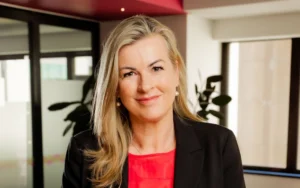Where should investors turn in the era of bubbles?
While nearly all the fussing on equity valuation and bubbles is centred on the US, Europe, Japan and the emerging markets (EMs) have provided decent returns year-to-date, after a prolonged period of relative underperformance, but stumbled in the face of rising Treasury rates. These regions are largely absent from the hype that is currently associated with parts of the US investment world, but it will take more to break away from the dominance of the US financial system.
The under-performance of Europe and Japan has been attributed to the lack of high growth companies, sluggish domestic economies and the legacy of structural issues in the banking sector. The problem for emerging markets lay elsewhere. Many referred to the strength in the USD and capital flows into the US markets, a patchy period for commodity prices that support some EM countries, the trade battle with the previous US administration, and plenty of self-inflicted wounds. These are now predominantly in the past, or the influence has changed such that the impact can fade.
Valuation is helpful, at 16x forward earnings, but the key is the return on investment. Another good reason for EMs’ weak performance in the past decade has been the sub-optimal balance sheets and return on capital. Large government-influenced and asset-heavy companies dominated the index. Then there were many new listings, often with revalued assets and new investments on the accounts dragging down the stated return. Family firms were often less focused on the return on capital, instead biased towards exerting control without the risk of interfering external shareholders. While these factors are still present, the stocks that are common in fund portfolios are well-honed in capital management.
As the index stands today, China is dominant at 40%, much like the US is in developed markets. South Korea and Taiwan make up another 26% while India is edging towards 10%. Then there is the array of smaller representation from Brazil to the likes of Argentina and Pakistan that barely register in weight. While South Korea and Taiwan are hardly emerging market countries, the lack of full currency convertibility inhibits a move to the DM indices. Besides, they have meaningful weight in EM, but would be a rounding error in DM.
Rather than getting too caught up in country weights, it is more useful to consider their macro positions. There are a group with a current account surplus or close to that (China and Malaysia), versus a group that are highly dependent on capital flows (Turkey and South Africa). One set are commodity producers offset by large commodity consumers. A number have young populations such as India and Indonesia, whereas maturing populations are a feature of others.
The breadth of EMs lends itself to an ever-evolving set of themes. Currently the semiconductor sector is reflecting another cycle of IT hardware investment. Select commodity prices are backed by the change in the energy and auto sectors. Development of local brands is taking over from the focus on imported premium product.
While the EM index has its own overplayed large caps – Alibaba, Tencent etc – it also has a greater diversity of options into which a fund can rotate.
Rather than flapping around in the growth versus value debate in developed markets, a tonic of a larger EM allocation has far more appeal.











